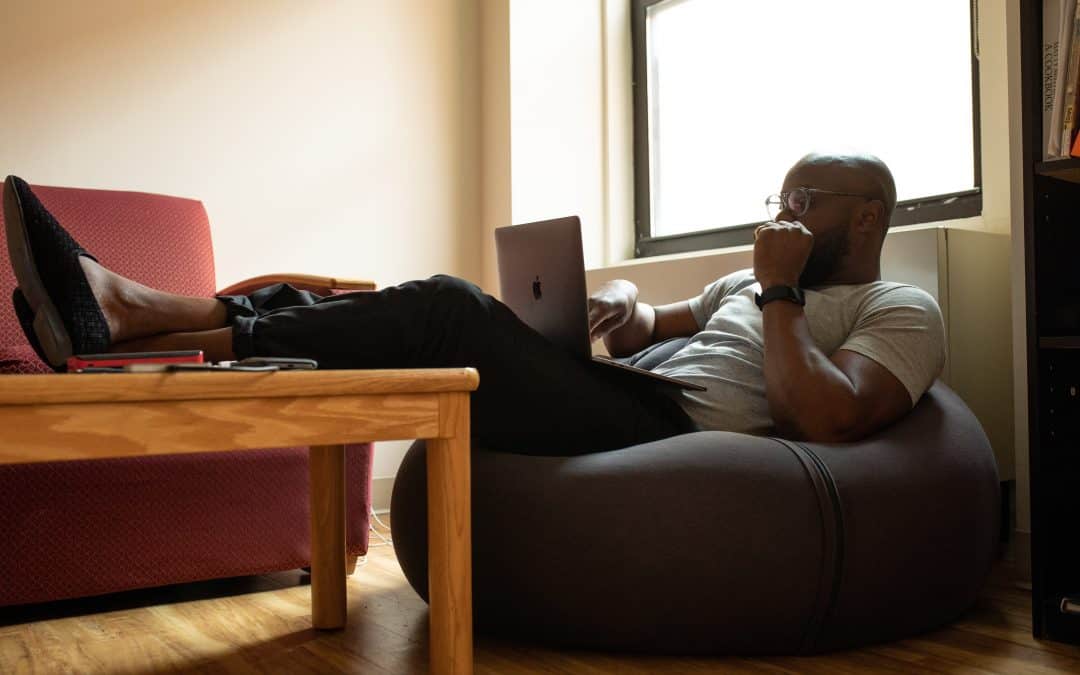There have been several long-standing tax reliefs for ‘homeworking arrangements’ but some of these have hitherto been subject to certain, sometimes restrictive, conditions. But with so many employees currently working from home as a result of coronavirus, HMRC have announced a number of modifications to the normal benefits and expenses regime in order to help make the transition to homeworking a little easier for both the employer and the employee.
Working From Home Equipment Expenses
The first hurdle that employees are likely to encounter is the provision of necessary equipment (typically computers, printers and other peripherals, etc.) to enable them to actually work from home. If the employer provides equipment specifically to facilitate homeworking there is already an exemption which applies where accommodation, supplies and services are provided and are mainly used to perform an employee’s duties of the employment.
Any private use of the equipment will be ignored for tax purposes if it is ‘insignificant’. In this context, ‘insignificant’ is not an objective test but a purposive test; it is not a measurement in terms of time but in terms of motive. What was the purpose for which the equipment was provided? If it was solely to enable the employee to work from home then in comparison to that genuine business need, any private use is likely to be considered insignificant. Nevertheless, it would be wise to set out the terms of use in a clear policy to demonstrate that that there is no intention to reward the employee.
One might generally expect the employer to provide most items required, but if the employee needs to purchase additional items, then as part of the range of measures introduced in respect of the coronavirus outbreak, the Government announced in May a temporary exemption where an employer reimburses an employee for costs incurred in purchasing equipment specifically to facilitate working from home.
To be eligible for relief, two conditions must be met:
(1)that the equipment is obtained for the sole purpose of enabling the employee to work from home as a result of the coronavirus outbreak; and
(2)provision of the equipment would have been exempt from income tax if it had been provided directly to the employee by or on behalf of the employer. Again, it is important that the employer only reimburses costs where there is a demonstrable business need for the equipment. Regulations will be introduced to legislate for this change, but in the meantime HMRC will exercise its collection and management discretionary powers and will not seek to collect tax (or NICs) on payments made on or after 16 March 2020.
Working From Home Mobile telephones and broadband Expenses
Where an employee is provided with a company mobile phone, there is an existing exemption which completely exempts the cost from tax where only one phone is provided.
In modern times, it would be relatively unusual for an employee not to have their own mobile telephone and broadband connection already in place. That being so, the important principle for employers to bear in mind is that tax relief is only available in respect of any additional costs incurred by the employee. The costs of line rental, for example, would be incurred by the employee even if they made no business calls and therefore no tax relief can be claimed for that rental cost. Similarly, a fixed monthly broadband fee will not give rise to a business cost, even if the proportion of business use greatly outweighs the private use. It is only where extra cost, (e.g. individual business call charges) are incurred that tax-free expenses can be paid.
In the unusual event that an employee does not already have broadband and it needs to be installed to facilitate homeworking, then the position is reversed; the whole amount will be an additional business cost and thus eligible for tax relief – in respect of both installation and subsequent monthly fees. Further, if the employee is then allowed to use the broadband privately, there is no additional cost to the employer and thus no taxable benefit arises for the employee – subject to that use being ‘insignificant’ as described above.
Expenses of the home – COVID-19 Lockdown updates
Working from home is likely to mean higher domestic heating and lighting bills for employees. In principle, the employer can reimburse these additional costs tax-free, but in practice it can be very difficult to quantify the precise additional cost incurred. There may be other expenses of working at home which are easier to quantify, for example, increased home insurance or even, in some cases, a liability for business rates.
HMRC recognise the difficulty and to minimise the need for record keeping, employers are able to pay up to £6 per week from 6 April 2020 (£4 per week up to 5 April 2020) without supporting evidence of actual costs the employee has incurred.
If the employer pays more, the exemption will still be available but the employee must then provide supporting evidence and calculations to support that the payment is wholly in respect of additional household expenses incurred.
Working From Home Company cars and mileage Expenses
One consequence of the national ‘lockdown’ is that travel has been greatly restricted. Some employees with company cars may find that they have a taxable benefit in respect of a car that they are largely unable to use. Unfortunately, whilst a company car is available it remains a taxable benefit even when it is not used. However, it was announced on 6 May 2020 that where an employee is furloughed but restrictions on movement mean the car cannot be handed back or collected, HMRC will accept that the car is not available for private use if:
- the contract is terminated – from the date the employee returns all keys/fobs;
- the contract continues – after 30 days from the date that the employee returns all keys/fobs.
Following the relaxation of coronavirus restrictions, the car will then continue to be treated as unavailable whilst the employee has no access to the keys/fobs and the car is therefore incapable of being driven in any circumstances. This measure recognizes that there may be delays in collecting the car from the employee even after restrictions have been lifted.
Note: unless these conditions are met, a car will still be treated as available for private use even if the employee is instructed not to use it and even if it is not actually used
In another small concession for company car drivers, where an employer provides fuel which is used by an employee engaged in volunteer work related to COVID-19 (for example delivering medical supplies), that mileage will not count for the purposes of the car fuel benefit charge.
In addition, employees engaged in volunteer work using their own cars may be paid at a rate up to the approved mileage rate (45p per mile for the first 10,000 miles, 25p per mile thereafter) without any tax implications. However, where the rate reimbursed is less than the approved mileage rate, the employee will not be able to make a claim for mileage allowance relief.
Get A No Fee, No Obligation Quote For Our Award-Winning Accountacy Services Today
- Unlocking Growth and Success: Our Fractional Finance Director and Business Advisory Services (our remote FD service) - 26 October 2023
- National Insurance Changes - 7 July 2022
- Corporation Tax Increase & Super Deduction Updates - 12 April 2021


